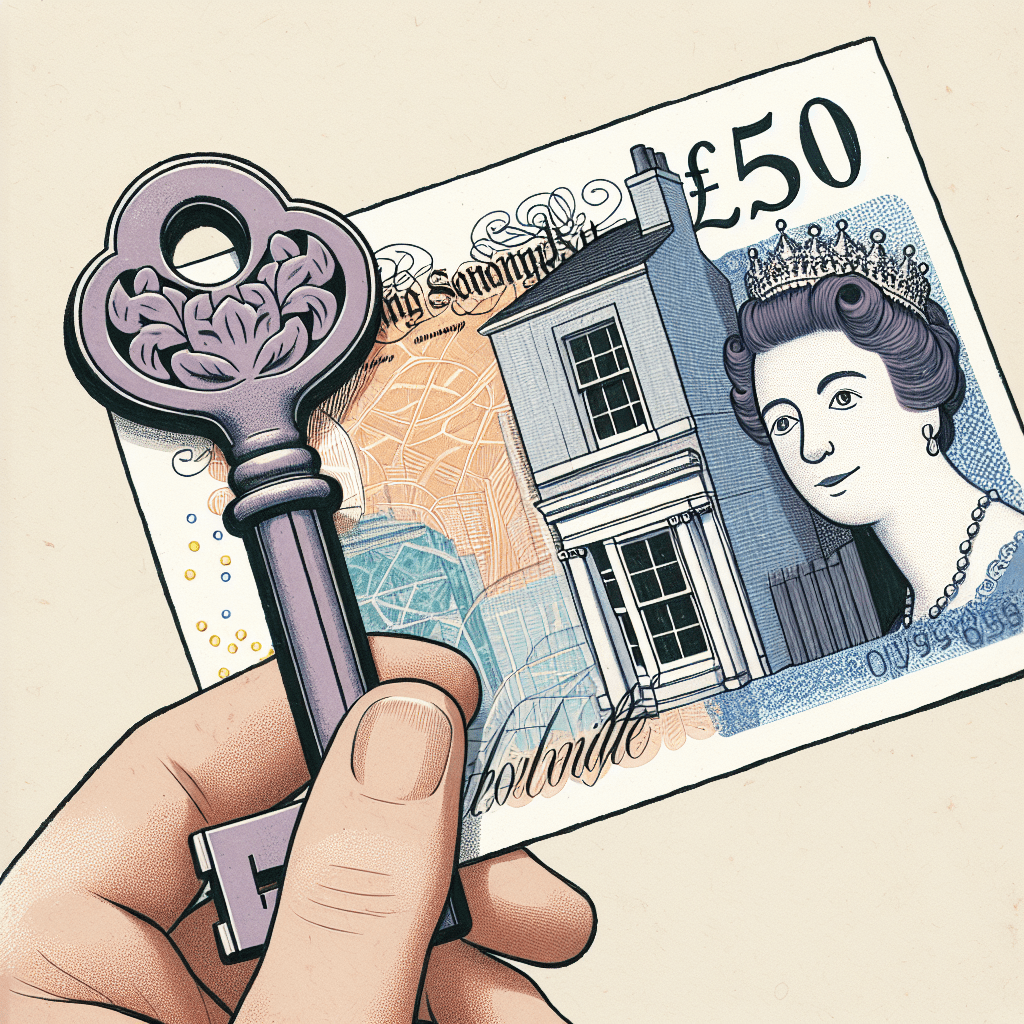Imagine the excitement of owning your own home in the UK. But here’s a burning question: Can you actually buy a house with a salary of £40,000? In this article, we’ll explore the possibilities and shed some light on whether this dream can become a reality for you. So sit back, relax, and let’s embark on this journey together to uncover the truth behind homeownership on a 40K salary in the UK.
Factors to Consider
When considering buying a house in the UK, there are several important factors to take into account. These factors will greatly influence your ability to purchase a home and determine the affordability of homeownership. By carefully evaluating each factor, you can make an informed decision and ensure that buying a house aligns with your financial goals.
1. Cost of Housing in the UK
The cost of housing in the UK is a significant factor to consider when determining whether you can buy a house with a £40,000 salary. The average house prices in the UK vary depending on location, property type, and size. It is crucial to understand the average house prices in the UK to gauge the affordability of homeownership.
2. Mortgage Affordability
Mortgage affordability plays a vital role in determining whether you can buy a house with your salary. Lenders have specific criteria and affordability assessments that assess your ability to repay a mortgage based on your salary and other financial obligations. Understanding the lenders’ criteria and your mortgage affordability is essential to make an informed decision about buying a house.
3. Income-to-Debt Ratio
Your income-to-debt ratio is another crucial factor that affects your ability to buy a house. This ratio compares your total debt, including credit card debt, student loans, and car loans, to your income. Lenders consider this ratio when assessing your mortgage eligibility. It is essential to evaluate your income-to-debt ratio to understand how it may impact your ability to buy a house.
4. Saving for a Down Payment
Saving for a down payment is an important step towards buying a house. The required down payment percentage varies depending on the lender and the type of mortgage. Developing effective savings strategies and determining realistic timeframes for saving can help you achieve your goal of homeownership.
5. Location and Housing Market
The location and housing market also play a significant role in the affordability of buying a house. Regional variations in housing affordability exist across the UK. It is important to consider the availability of affordable homes in the location where you wish to purchase a house and analyze future property value appreciation. Additionally, commuting distances and lifestyle considerations should also be taken into account when evaluating the location.
6. Government Schemes and Incentives
The UK government provides various schemes and incentives to assist individuals in purchasing a house. These schemes, such as the Help to Buy, Shared Ownership, Right to Buy, Help to Save, and Lifetime ISA, can help enhance affordability and make homeownership more accessible. Researching and understanding these schemes can provide valuable opportunities to fulfill your dream of buying a house.
Cost of Housing in the UK
To determine whether you can buy a house with a £40,000 salary in the UK, it is essential to understand the cost of housing. Average house prices in the UK vary significantly depending on factors such as location, property type, and size.
1. Average House Prices in the UK
According to recent data, the average house price in the UK is around £256,000. However, this figure varies greatly across different regions and cities. For example, in London, average house prices are much higher compared to more affordable areas in Northern England or Wales. It is important to research average house prices in your desired location to have a realistic understanding of the cost of housing.
2. Regional Variations in House Prices
Regional variations in house prices can greatly influence the affordability of homeownership. While major cities and affluent areas may have significantly higher house prices, there are also areas where house prices are more affordable. Researching and considering regional variations in house prices can help you identify locations where your £40,000 salary can stretch further.
3. Affordability Based on Salary
When considering the cost of housing, it is crucial to determine whether your salary can cover the mortgage payments comfortably. Lenders generally adhere to the “three times salary” rule, where the mortgage offered is typically three times your annual salary. Based on this rule, a £40,000 salary would potentially qualify you for a mortgage of up to £120,000. However, other factors such as your credit score, debt obligations, and living expenses will also impact your affordability.
4. Property Types and Sizes
The size and type of property you are considering will also influence the cost. Smaller properties, such as apartments or starter homes, may be more affordable compared to larger houses or properties in prime locations. Consider the trade-offs between size, location, and cost to determine the most suitable property for your budget and lifestyle.

Mortgage Affordability
When determining whether you can buy a house with a £40,000 salary, mortgage affordability is crucial. Lenders have specific criteria and affordability assessments to evaluate your ability to repay a mortgage.
1. Lenders’ Criteria and Affordability Assessments
Lenders use their own criteria and affordability assessments to evaluate your mortgage application. They consider factors such as your income, credit score, employment stability, and debt obligations. Additionally, they also assess the sustainability of your mortgage payments in the long term.
2. Loan-to-Income Ratio
A key factor considered by lenders is the loan-to-income ratio. This ratio compares your total annual income to the amount you wish to borrow for the mortgage. Typically, lenders look for a loan-to-income ratio below 4.5, but this may vary depending on the lender and your individual circumstances.
3. Loan-to-Value Ratio
The loan-to-value ratio compares the mortgage amount to the value of the property you wish to purchase. Lenders generally require a loan-to-value ratio of 75-95%. This means that you may need a deposit of at least 5-25% of the property’s value. It is important to consider the deposit amount required and evaluate your ability to save for a down payment.
4. Affordability Calculators
To get an estimate of your mortgage affordability, you can use online affordability calculators provided by lenders or independent organizations. These calculators take into account factors such as your income, expenses, and deposit amount to give you an indication of the mortgage amount you may be eligible for. However, keep in mind that these calculators are approximate and should be used as a guide rather than an exact prediction.
Income-to-Debt Ratio
Your income-to-debt ratio is an important consideration when looking to purchase a house with a £40,000 salary. This ratio compares your total debt, including credit card debt, student loans, and car loans, to your income.
1. Total Debt and Monthly Debt Payments
Evaluate your total debt, including all monthly debt payments, to understand your income-to-debt ratio. Lenders typically prefer a debt-to-income ratio below 43% to ensure that you have enough income to cover your mortgage payment and other expenses.
2. Debt-to-Income Ratio
Your debt-to-income ratio is calculated by dividing your total monthly debt payments by your gross monthly income. This ratio gives lenders an idea of your ability to manage your debt obligations and your overall financial stability.
3. Impact on Mortgage Eligibility
If your income-to-debt ratio is high, it may impact your mortgage eligibility. Lenders may consider you to be at a higher risk of defaulting on your mortgage payments. It’s important to evaluate your debt level and consider reducing it before applying for a mortgage, if possible, to improve your chances of securing a mortgage.

Saving for a Down Payment
Saving for a down payment is an important step towards buying a house with a £40,000 salary. The required down payment percentage and the ability to save for it will impact your ability to purchase a home.
1. Required Down Payment Percentage
The required down payment percentage varies depending on the lender and the type of mortgage. Typically, lenders require a down payment of at least 5-25% of the property’s value. It is important to research and understand the specific requirements of different lenders and the type of mortgage you are considering.
2. Savings Strategies and Timeframes
Developing effective savings strategies and determining realistic timeframes is essential to save for a down payment. Consider cutting back on non-essential expenses, setting a monthly savings goal, and exploring ways to increase your income. Additionally, opening a dedicated savings account and automating regular deposits can help you stay disciplined and track your progress.
3. Assistance from Family or Government Schemes
If saving for a down payment seems challenging, consider seeking assistance from family members or exploring government schemes and incentives. The UK government provides various schemes, such as the Help to Buy scheme and Shared Ownership scheme, that can help first-time buyers access homeownership. Research these options to determine if they align with your financial situation.
Location and Housing Market
The location and housing market play a significant role in the affordability of buying a house. Consider the following factors when evaluating the location and housing market.
1. Regional Variations in Housing Affordability
Housing affordability varies across different regions in the UK. Major cities and affluent areas generally have higher house prices, while more affordable homes may be available in smaller towns or rural areas. Researching regional variations in housing affordability can help you identify locations where your £40,000 salary can go further.
2. Availability of Affordable Homes
Consider the availability of affordable homes in the location where you wish to purchase a house. In some areas with high demand, affordable homes may be limited, resulting in increased competition and potential price increases. Explore different areas and consider expanding your search radius to increase your chances of finding an affordable home.
3. Future Property Value Appreciation
Evaluate the potential for future property value appreciation in the location you are considering. While past trends do not guarantee future performance, researching market conditions and economic factors can give you an indication of the potential growth in property values. Consider consulting with local experts or real estate professionals to gain insights into the market.
4. Commute and Lifestyle Considerations
When choosing a location, consider your daily commute and lifestyle preferences. Factor in commuting distances to work or other essential amenities, such as schools, healthcare facilities, and recreational areas. Additionally, think about the local community and whether it aligns with your lifestyle requirements.

Government Schemes and Incentives
The UK government offers various schemes and incentives to facilitate homeownership. Understanding these programs can provide opportunities to enhance affordability.
1. Help to Buy Scheme
The Help to Buy scheme provides assistance to first-time buyers and existing homeowners in purchasing a new-build property. It offers an equity loan of up to 20% of the property’s value (40% in London) that can be used in conjunction with a mortgage, resulting in a lower deposit requirement.
The Shared Ownership scheme allows you to purchase a share (between 25-75%) of a property and pay rent on the remaining share. Over time, you can increase your ownership through a process called staircasing. This scheme makes homeownership more accessible and affordable for individuals with lower incomes.
3. Right to Buy Scheme
If you are a council or housing association tenant, you may be eligible for the Right to Buy scheme. This scheme allows eligible tenants to purchase their rented property at a discounted price. The size of the discount depends on factors such as the length of tenancy and the type of property.
4. Help to Save Scheme
The Help to Save scheme is designed to help individuals on low incomes build savings. It offers a 50% government bonus on savings of up to £50 per month for four years. The savings can be used towards various purposes, including homeownership.
5. Lifetime ISA
The Lifetime ISA (Individual Savings Account) is another government scheme aimed at helping individuals save for a first home or retirement. For every £4 saved in a Lifetime ISA, the government adds £1 as a bonus. The annual limit for contributions is £4,000, and funds can be used towards a qualifying property purchase.
Other Financial Considerations
In addition to the factors mentioned above, there are other financial considerations to keep in mind when buying a house with a £40,000 salary.
1. Credit Score and Credit History
Your credit score and credit history play a crucial role in mortgage eligibility and interest rates offered. Maintain a good credit score by paying bills on time, managing debts responsibly, and keeping credit card balances low. Regularly review your credit report to ensure accuracy and address any discrepancies.
2. Monthly Expenses and Budgeting
Evaluate your monthly expenses and develop a comprehensive budget to ensure you can afford the costs of homeownership. Take into account regular expenses such as utilities, insurance, property taxes, and maintenance costs. A thorough understanding of your financial obligations will help you make realistic decisions.
3. Additional Costs of Homeownership
Besides the monthly mortgage payment, there are additional costs associated with homeownership. These costs include property taxes, insurance, maintenance and repairs, and utility bills. Consider these expenses when assessing the affordability of buying a house with your £40,000 salary.

Alternative Paths to Homeownership
If buying a house outright seems challenging with a £40,000 salary, there are alternative paths to homeownership that you can explore.
1. Renting with the Option to Buy
Consider renting a property with the option to buy in the future. This arrangement allows you to rent the property initially and potentially purchase it at a later date, providing you with more time to save for a down payment or improve your financial situation.
2. Joint Ownership or Co-Ownership
Joint ownership or co-ownership allows you to share the ownership of a property with one or more individuals. This arrangement can help alleviate financial burdens and increase buying power. However, it is important to establish clear agreements and consider legal advice when entering into joint ownership.
3. Investing in Property
Consider investing in property as a landlord. Purchasing a property and renting it out can provide an additional income stream, potentially enabling you to save for a future home or improve your financial position. However, being a landlord comes with responsibilities and risks, so careful consideration is necessary.
Shared ownership arrangements, as discussed earlier, allow you to purchase a share of a property and pay rent on the remaining portion. This can be an affordable way to enter the property market and gradually increase your ownership.
Conclusion
Buying a house in the UK with a £40,000 salary is achievable, but it requires careful consideration of various factors. Evaluating the cost of housing, mortgage affordability, income-to-debt ratio, savings for a down payment, location and housing market, government schemes and incentives, and other financial considerations is crucial in making an informed decision. By considering these factors and exploring alternative paths to homeownership, you can work towards fulfilling your dream of owning a house in the UK.
